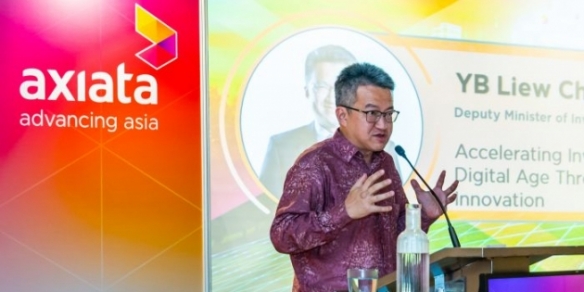Week in Review: Is the Malaysian government against innovation and disruption?
By Karamjit Singh July 16, 2018
- Slaps e-hailing players such as Grab with slew of regulations that stifle the startup spirit
- Actions seem to reward old economy players unable/unwilling to adapt to digital reality
IF the government wants to send the message that it is not serious about innovation, it is doing a good job. First it drops the word from the Ministry of Science and Technology, which now goes by the mouthful Ministry of Science, Technology, Environment and Climate Change.
And then, courtesy of the Ministry of Transport, it introduces new legislation for the e-hailing sector (which really is aimed at Grab Technologies Sdn Bhd), under the motivation of creating a “level playing field” with Malaysia’s world (in)famous taxi service.
I am flabbergasted. Here you have Grab, which ‘only’ recently beat Uber Technologies after going head to head with probably the most famous and aggressive startup in the world today. Grab didn’t do it by just being cheaper than Uber. It outcompeted Uber and out-innovated it as well.
And while I agree that the various anti-competition investigations launched in Southeast Asia are warranted, for Malaysia to introduce a bevy of regulations for ride hailing players under the pretext of leveling the playing field for a competing product recognized as being the worst in the world, is incredibly hard to swallow.
The Malaysian government is rewarding poor service, it is saying, traditional businesses that cannot compete with digital disruption can cry foul to the government, which will then “level the playing field” according to the rules of the Old Economy.
And it is not for the government to set what a private entity in an open market should charge for its services as the government has, limiting Grab to taking a 10% cut from taxis which join its service and a 20% maximum cut from private drivers. Why is this happening?
Even though Grab is competing against at least six taxi companies and one new ride hailing startup, the common perception is that it is a monopoly now. And that is because its competitors are providing such an inferior service that customers see Grab as a monopoly.
But the one thing its competitors do better than Grab is to complain.
It seems like all the complaining the taxi drivers and their companies have been doing has actually worked. If only they had spent half that time and energy in keeping their vehicles cleaner and improving customer service.
And while I feel that Grab’s service today is not as good as it used to be in the past, it is an undeniable fact that, Singapore aside, Grab has been providing riders in SEA with a cleaner, safer, more reliable and comfortable service than any of their taxi competitors in the region.
But they have not rested on their laurels, going after the food delivery market and making a big push into the payments space as well and investing in R&D with centres set up in Seattle, Jakarta, Singapore and Shanghai.
And this is why they have grown into becoming one of the top three most valuable startups in SEA. Anthony Tan, a DNA Digerati50 and his co-founder, Tan Hooi Ling, have done many things right to get to this stage. And their reward in their home country is to get slapped with a slew of regulations.
For a country that is ambitiously aiming to be the startup hub of SEA, a decision such as this can be damaging to its aspirations as it sends the message that the government wants to protect old and tired businesses from hungry, innovative digital powered challengers.
Having said that, there is good news for Malaysians on the network side of the digital economy. The large increase in broadband speeds announced by incumbent telecoms player, Telekom Malaysia Bhd (TM) has made its customers a happy lot.
To be progressively rolled out starting in mid Aug, existing broadband customer customers of TM’s fibre service called Unifi will be given up to a 10x complimentary upgrade with a max speed of 800mbps. Not forgetting its copper based Streamyx customers, about 340,000 of them living in Unifi areas will be immediately getting an upgrade to the 200 mbps Unifi package.
Bottom line what this means, as TM’s acting group CEO Bazlan Osman said is, “In moving towards a digital economy, it is important that Malaysia scale up its broadband speeds to enable the endless possibilities of digital technology.”
The push for TM to provide this upgrade, sooner rather than later came from the Malaysian government which adopted the pro broadband policies of the previous government while accelerating the time lines.
This speed upgrade will surely encourage more entrepreneurs to launch their startups, and encourage more overseas entrepreneurs to consider setting up base in Malaysia, that is provided they are convinced that the new government aims to boost the digital economy and not squeeze those who aim to leverage on it.
With that, I hope you had a restful weekend and wish you a productive week.
Editor’s Picks:
TM faces ‘mammoth task’ of upgrading broadband speed; offers RM79 unifi package
Cyber-security threats to cost Malaysian organisations US$12.2bil in economic losses
Nutanix brings hyper-converged infrastructure to cloud ecosystem
Protecting consumers in a blockchain world
MDEC wants to raise the visibility of local success stories
A new challenger arrives with social ride-sharing service Dacsee
Create a level playing field for the sake of our nation
For more technology news and the latest updates, follow us on Facebook, Twitter or LinkedIn


